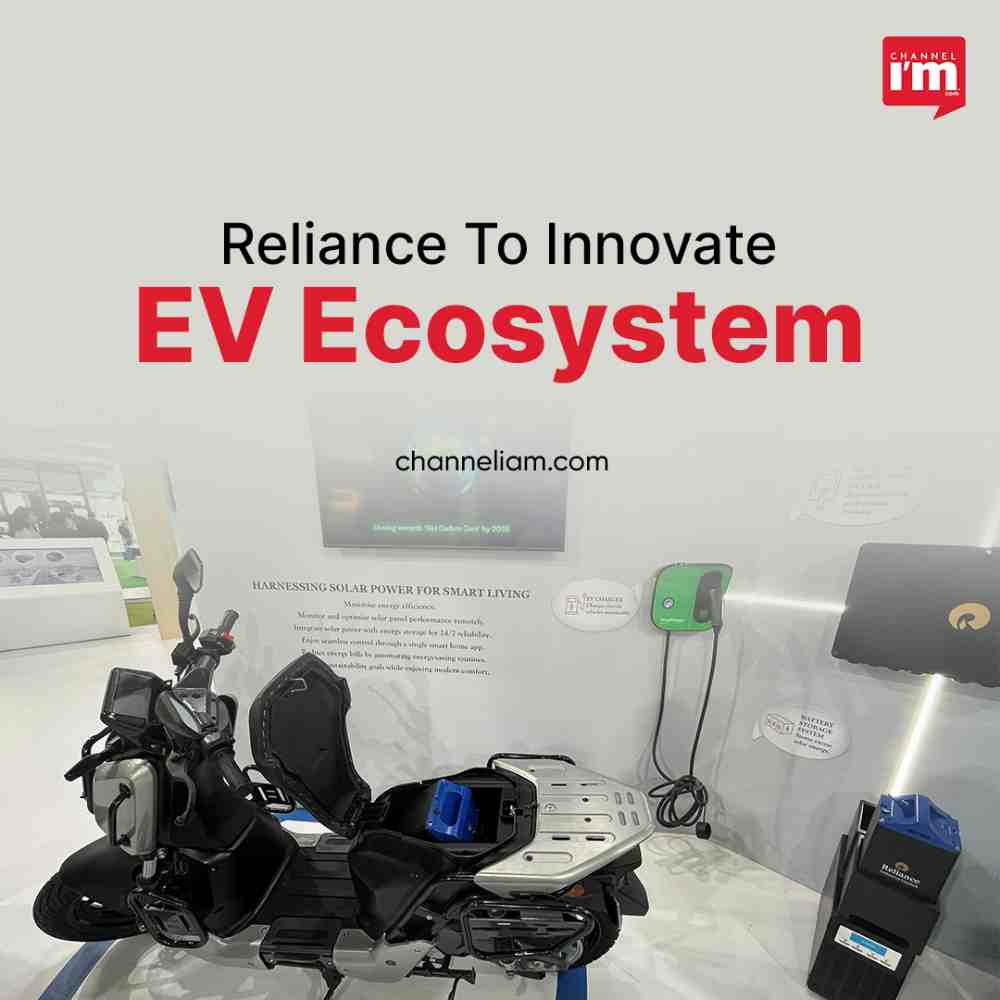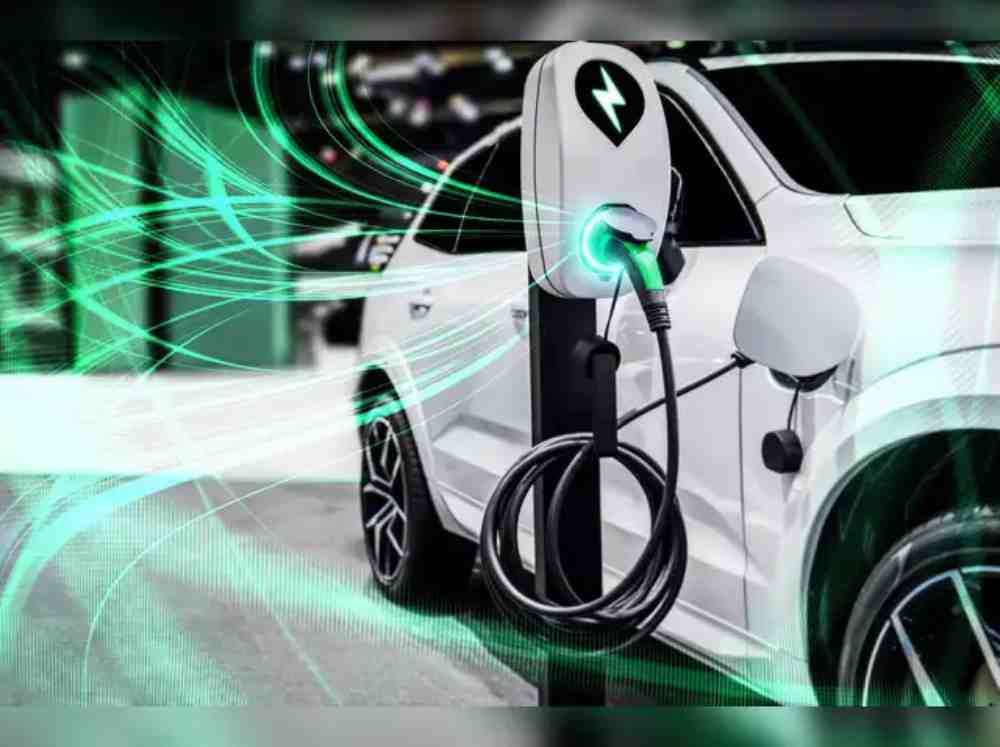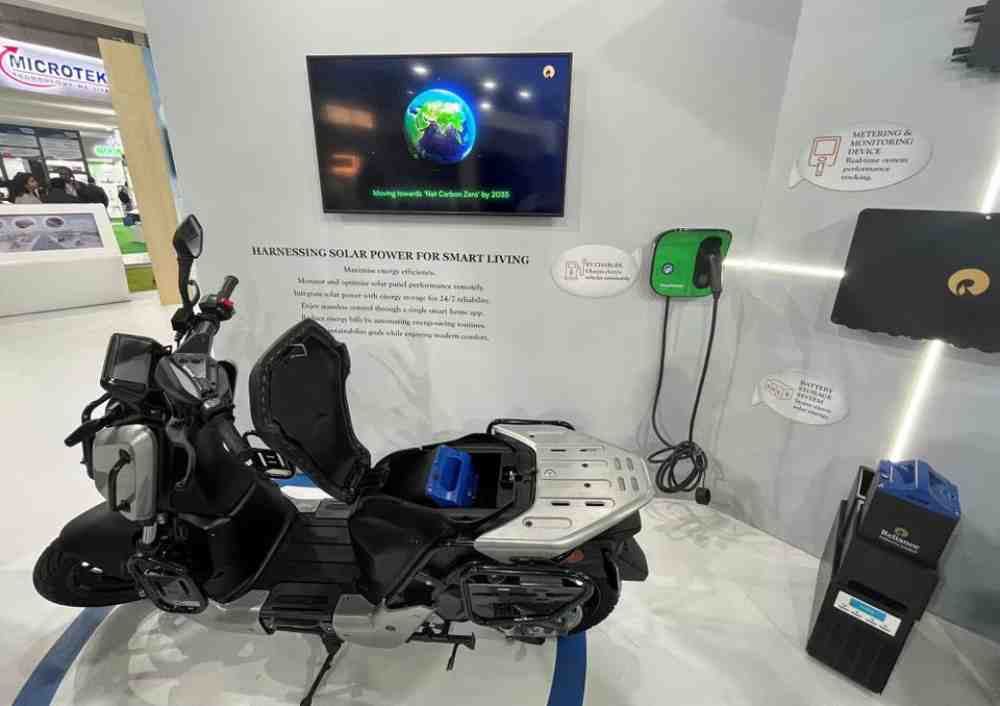Embarking an entry to India’s EV ecosystem, the oil-to-telecom conglomerate Reliance Industries has unveiled its swappable and multipurpose battery storage technology for electric vehicles, to make a bigger push towards clean energy and transport.

The idea behind this innovation is that a person can use one battery for mobility as well as for powering appliances at home. The batteries can be swapped at Reliance’s battery swap stations or recharged by households using rooftop solar panels, which it also plans to sell, according to a Reuters’ report.
A company presentation at the Renewable Energy India Expo 2023 in Greater Noida on October 4, showed that it is also working on customizable batteries for business and individual usage, intelligent swap stations and integrated charging networks. Reliance doesn’t plan to get into EV manufacturing but will partner with EV makers, the presentation showed.
Acquisitions
The move towards this innovative development began a few months back. The company had purchased Faradion, a UK startup developing sodium-ion batteries for $135 million. Right after three months, in March 2022, Reliance Industries had acquired the assets of cobalt-free lithium battery technology company Lithium Werks for $61 million, as it builds technology and material wherewithal for setting up an end-to-end battery manufacturing.

The reports stated that development of battery storage solutions is a part of Reliance’s bigger $10 billion green push towards clean energy projects. Reportedly, the company aims to cut dependence on its mainstay oil-to-chemical business and be net zero carbon by 2035.
Project Proposal
During the Conglomerate’s 46th Annual General Meeting (AGM) held on August 28, Reliance Industries Chairman and Managing Director, Mukesh Ambani had said that RIL has plans to set up its battery gigafactory in India by 2026. He also mentioned that the proposed gigafactory, which is expected to cater to Electric Vehicles (EVs), will also include a battery recycling facility.

Reliance won an incentive last year to set up a 5 gigawatt hours (GWh) battery manufacturing facility under India’s $2.4 billion programme that aims to boost local battery cell production. As part of RIL’s ambition to create an end-to-end battery ecosystem, the company had earlier announced plans to set up a gigafactory that will make battery packs, and said that it will be a part of its Dhirubhai Green Energy Giga Complex at Jamnagar, Gujarat.
Others in the same route
While celebrating India’s richest man’s contribution in the industry, it is to be observed that Global tech giant Tesla had dismissed a similar plan of alternative path of electric car battery swapping, two years ago. Back in 2013, Tesla demonstrated a battery swap system on its Model S, changing out the battery in the same time it takes to fuel up an Audi sedan.

A year afterwards, Elon Musk said “We’re a little late on [battery swapping] because we got preoccupied with a few other issues. But we’re hopefully going to get that enabled in the next few months between LA and San Francisco.”
A Tesla spokesperson later confirmed that “the company believes electric vehicle charging is the best way to power its vehicles, and that battery swapping is riddled with problems and not suitable for wide scale use,” to propagate that it is not the company’s priority.
Eventually, in recent times, Elon Musk-led Tesla had again come up with plans to make and sell battery storage systems in India and submitted a proposal to officials seeking incentives to build a factory, as the billionaire continued a push to enter the country.

Tesla had also been in talks about setting up a new electric vehicle (EV) factory in India to build a car priced around $24,000, with discussions overseen directly by Prime Minister Narendra Modi. No developments have been reported yet.
Several companies – Sun Mobility, Ample and NIO, amongst others – are still working to revolutionize the battery swapping solutions.
